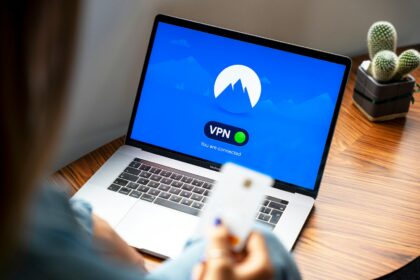Starting a career in cybersecurity is exciting and rewarding. It offers a mix of stability and the thrill of protecting digital assets. With more companies needing cybersecurity experts, this field is booming for newcomers.
Whether you want to fight cyber threats or explore new tech, entry-level jobs are a great place to begin. These roles are perfect for those new to the field.
As cyber threats grow, companies are looking for skilled people to keep their systems safe. This means there are more jobs for beginners. These roles offer chances to grow and specialize in different areas.
The Growing Demand for Cyber Security Professionals
The need for cybersecurity experts is growing fast. This is because digital tech is now a big part of our lives. The U.S. Bureau of Labor Statistics says there will be a 32% increase in these jobs by 2032.
Why the Demand is Increasing
Several things are causing this demand to rise. One reason is the quick growth of digital tech. This makes systems more open to attacks. Also, places like healthcare, finance, and government are at high risk because of the sensitive data they handle.
So, the *cybersecurity industry growth* is not just a trend. It’s a must for keeping our digital world safe and trustworthy.
Impact of Cyber Threats on Various Industries
Cyber threats have a big impact on many industries. For example, healthcare can be severely hit by ransomware attacks, risking patient lives. Financial institutions suffer huge losses and damage to their reputation from cyber breaches.
Government bodies are also targets, posing risks to national security. These examples show how *cyber threats impact* on key services. They highlight the need for more *rising demand in cybersecurity* experts to tackle these challenges.
| Industry | Common Cyber Threats | Impact |
|---|---|---|
| Healthcare | Ransomware, data breaches | Patient safety risks, operational disruptions |
| Finance | Phishing, financial fraud | Monetary losses, reputational damage |
| Government | Espionage, infrastructure attacks | National security threats, public trust erosion |
| Technology | Intellectual property theft, DDoS attacks | Innovation stifling, service downtime |
What Are Entry Level Cyber Security Jobs?
Entry-level cybersecurity jobs are a key entry point into the field. They offer a chance to learn the basics and gain experience. These roles are perfect for newcomers, helping them build a strong foundation in cybersecurity.
Common Entry-Level Roles
There are several entry-level cybersecurity jobs available. Each role plays a unique part in keeping an organization safe. Some common roles include:
- Information Security Analysts
- Cybersecurity Specialists
- IT Auditors
These jobs are vital for keeping data and networks safe from threats.
Responsibilities of Entry-Level Jobs
Entry-level cybersecurity jobs have various responsibilities. They often involve monitoring, analysis, and implementation. Key tasks include:
- Monitoring network security for breaches
- Analyzing threats and vulnerabilities
- Implementing security measures
- Checking if current security works
By doing these tasks, entry-level jobs help keep security up to date. They also offer a chance to move up in the cybersecurity field.
| Role | Primary Responsibilities |
|---|---|
| Information Security Analyst | Monitoring and analyzing security incidents |
| Cybersecurity Specialist | Implementing security measures and conducting risk assessments |
| IT Auditor | Reviewing and evaluating an organization’s IT infrastructure |
Essential Skills for an Entry Level Cyber Security Job

Starting a career in cybersecurity needs a mix of technical and soft skills. You also need relevant certifications in cybersecurity.
Technical Skills
Knowing programming languages like Python is key. Understanding network setups and security protocols is also important. These skills help you spot and fix security problems.
Soft Skills
Soft skills are just as vital. Skills like problem-solving, analytical thinking, and good communication are essential. They help you work well with others and explain complex security issues clearly.
Certifications and Courses
Certifications in cybersecurity offer a clear learning path and prove your skills. Certs like CompTIA Security+ and Certified Ethical Hacker (CEH) are highly regarded. They make your resume stronger and give you the knowledge to handle cybersecurity issues.
Information Security Analyst
The role of an information security analyst is key in protecting a company’s digital assets. As a vital part of the cybersecurity team, you’ll make sure computer networks and systems are safe and secure.
Key Responsibilities
As an information security analyst, you’ll watch over security access and do security checks. You’ll also handle network breaches and set up strong security measures. Keeping up with new security trends and threats is part of the job.
Required Certifications
Certifications are important to show you know your stuff. Key ones for this job are CompTIA Security+, GIAC Certified Intrusion Analyst (GCIA), and GIAC Certified Incident Handler (GCIH). These show you can spot and deal with security threats, and keep networks safe.
Feeder Roles
Before becoming an information security analyst, you might start as a Network Administrator or Systems Administrator. These jobs help you learn how to manage networks and solve problems. These skills are essential for moving into a security analyst role.
Information Security Specialist
Starting a career as security specialist opens many doors in IT. As an Information Security Specialist, you work on keeping information systems safe. You do this by setting up and keeping strong security measures in place.
Typical Responsibilities
Your daily tasks might include testing firewalls and updating antivirus software. You also teach staff about important security rules. Sometimes, you’ll do risk assessments and handle security breaches.
Common Certifications
Getting the right security specialist certifications is key to moving up in your career. Some top certifications are:
- CompTIA Security+
- Systems Security Certified Practitioner (SSCP)
- GIAC Security Essentials (GSEC)
Career Paths
Your career as security specialist might start with IT support or systems engineering. With experience and security specialist certifications, you can move up. You could become a Security Manager or Security Architect. These roles need a strong grasp of security and planning, leading to senior management positions.
Digital Forensic Examiner
A Digital Forensic Examiner is key in solving cybercrimes. They find and analyze data from digital devices. This job is vital in legal battles against cybercriminals.
To do well in digital forensics, you must know a lot about data recovery and forensic tools. Getting certifications like GIAC Certified Forensic Analyst (GCFA) shows you’re skilled.
Starting as an IT support specialist or risk analyst can lead to this role. Your duties include:
- Collecting and analyzing digital evidence
- Investigating data breaches
- Supporting legal procedures by providing expert testimony
Here’s a look at some common certifications for Digital Forensic Examiners:
| Certification | Provider | Focus Area |
|---|---|---|
| GIAC Certified Forensic Analyst (GCFA) | GIAC | Incident Response and Forensics |
| EnCase Certified Examiner | OpenText | Forensic Investigations |
Being a Digital Forensic Examiner is both challenging and rewarding. It’s a great career in digital forensics.
IT Auditor
Being an IT Auditor means you focus on finding and fixing risks in a company’s tech systems. Your main jobs are to make sure the company follows rules, do detailed checks, and suggest ways to make security better.
An IT compliance and audit pro is key in setting up and doing these checks. You’ll write down what you find, share it with others, and tell them what needs to be fixed. Jobs like network admin and risk analyst help you learn about IT and managing risks.
Getting certified, like CISA or CIA, shows you know a lot about IT audit and compliance. These certifications make you more attractive to employers and prove you’re good at IT rules and practices.
To do well as an IT auditor, you need to be detail-oriented, good at talking to people, and know a lot about today’s tech. Taking on these roles and getting certified helps you handle the tough parts of IT audit and compliance.
Cyber Security Certifications to Kickstart Your Career
Starting a career in cybersecurity can seem tough. But, getting the right certifications can really help. These certifications show you know your stuff and are serious about your job.
CompTIA Security+
CompTIA Security+ is a key starting point. It teaches you the basics of cybersecurity. You’ll learn about network security, managing risks, and spotting threats. It’s great for newbies because it’s well-known and covers the basics.
Certified Ethical Hacker (CEH)
If you’re into the defensive side, Certified Ethical Hacker (CEH) is perfect. It gives you real-world practice in finding and fixing system weaknesses. It’s essential for those focusing on penetration testing and ethical hacking.
Further Certifications
As you grow in your career, look into more advanced certifications. Certified Information Systems Security Professional (CISSP) and GIAC Security Essentials (GSEC) are great for diving deeper. They’re known worldwide and can open more doors for you.
To kick off your cybersecurity career, getting the right certifications is key. CompTIA Security+ and CEH are must-haves for beginners. For more advanced roles, CISSP and GSEC offer specialized knowledge to take your career to the next level.
Gaining Hands-On Experience
Getting real-world cybersecurity skills is key to moving up in the field. There are many ways to get hands-on experience. Each method has its own benefits and learning opportunities.
Virtual Labs and Simulations
Virtual labs and simulations are great for improving your cybersecurity practice. Sites like Hack The Box and TryHackMe offer a safe space to practice. You can tackle real-world security challenges and grow more confident in facing cyber threats.
Home Lab Setup
Setting up a home lab is another good way to practice. You can use tools like Wireshark and Metasploit in your lab. This hands-on approach helps you understand network traffic and vulnerability exploitation.
Open-Source Contributions
Working on open-source security projects is good for your real-world cybersecurity skills. It also helps you get noticed in the community. GitHub has many open-source projects where you can work with others, improve your skills, and show your work to employers.
Personal Projects
Starting your own cybersecurity projects shows you’re proactive and eager to learn. You could develop a new tool, write about cybersecurity, or make educational content. These projects can highlight your skills and problem-solving abilities to employers.
Networking: Building Connections in Cyber Security
Building strong connections in the cybersecurity world is key for career growth. Talking to peers in the field gives you insights into new trends. It also opens doors to job chances and finding mentors.
Using both in-person and online platforms can grow your network well.
Importance of Networking
Knowing the value of networking in cybersecurity is vital. A strong network can lead to new opportunities and partnerships. It helps you keep up with trends, find jobs, and meet mentors.
Where to Network
Knowing where to network is important. Get involved in:
- Industry-specific conferences like DEF CON and Black Hat.
- Professional seminars and workshops.
- Online forums and communities, such as LinkedIn and Reddit.
- Local cybersecurity meetups and user groups.
Tips for Effective Networking
Here are some cybersecurity networking tips for good interactions:
- Be Proactive: Start conversations and keep in touch with contacts.
- Participate Actively: Share your knowledge and join discussions on sites like LinkedIn.
- Follow Up: Keep your connections alive by regularly checking in.
- Offer Value: Help and share insights with your network to be a valuable resource.
Building professional networks can greatly impact your career. Using these cybersecurity networking tips will help you make lasting connections. This will boost your career chances and growth.
Leveraging Cyber Security Bootcamps
Cybersecurity education is now easier to get thanks to bootcamps. These programs give you the skills you need fast. You learn the basics and get hands-on experience, often ending with a certification.
Bootcamps also offer career help. They prepare you for interviews and help with your resume. This is great for those new to cybersecurity or looking to switch careers.
Let’s look at the benefits of bootcamps that focus on real-world skills:
| Bootcamp Feature | Benefit |
|---|---|
| Hands-On Labs | Direct application of skills in simulated environments |
| Mentorship | Guidance from industry professionals |
| Career Services | Support in job placements and interview readiness |
| Certification Exam Preparation | Focused training to pass key exams |
Bootcamps are perfect for starting or advancing your cybersecurity career. They offer a fast, effective way to learn and succeed in the field.
Exploring Opportunities on Tech Job Platforms
Looking for the right job in cybersecurity can be easier with tech career platforms. These sites offer many job listings and insights into companies and roles.
Popular Job Platforms
When searching for a cybersecurity job, sites like LinkedIn, indeed, and Glassdoor are great. They have a wide range of jobs. You can find jobs that match your skills and goals.
They also have reviews of companies, salary info, and connections with recruiters. This makes your job search smarter and faster.
Specialized Cyber Security Job Sites
For a more focused search, try sites like Dice, ClearedJobs.Net, and NinjaJobs. They focus on tech and cybersecurity jobs. You’ll find targeted listings and detailed company info.
These sites are perfect for finding jobs with employers who really need cybersecurity experts.
Government Job Boards
If you’re interested in public service, check out USAJobs.gov. It lists jobs in federal agencies, big employers of cybersecurity talent. The federal government needs strong data protection, so you can find meaningful jobs.
Conclusion
Starting a career in cybersecurity is both exciting and rewarding. It’s a field that’s growing fast, thanks to our increasing reliance on technology. There are many entry-level jobs that can help you get started and learn the ropes.
To succeed, keep learning and getting certifications. It’s not just about technical skills. Soft skills and hands-on experience are just as important. Try out virtual labs, work on personal projects, and join open-source projects.
Also, building a strong network is key. Connect with others in the field and find mentors. They can help you understand the industry better and find new opportunities.
Cybersecurity is a field with many challenges and rewards. Whether you want to work in the private or public sector, there’s a place for you. Stay committed to your growth and you’ll find a fulfilling career in this critical field.
FAQ
Why is the demand for cybersecurity professionals increasing?
The demand is growing because we rely more on digital technology. This makes our digital world more vulnerable. Industries like healthcare and finance need strong cybersecurity to protect their data.
How do cyber threats impact various industries?
Cyber threats expose weaknesses in industries that handle sensitive info. Healthcare, finance, government, and tech are at high risk. They need strong cybersecurity to prevent data breaches and attacks.
What are some common entry-level cybersecurity roles?
Entry-level roles include Information Security Analysts, Cybersecurity Specialists, and IT Auditors. These jobs are key to keeping networks safe by monitoring security, analyzing threats, and implementing protection.
What responsibilities do entry-level cybersecurity jobs typically entail?
These jobs involve monitoring security access, testing for vulnerabilities, and analyzing threats. They also include updating security settings and teaching staff about security protocols. These tasks are vital for an organization’s security.
What technical skills are essential for entry-level cybersecurity jobs?
You need skills in programming languages like Python and knowledge of network configurations. Understanding security protocols and using tools like Wireshark and Metasploit are also important. These skills help identify and fix security threats.
What soft skills are important for cybersecurity professionals?
Skills like problem-solving, analytical thinking, and communication are key. They help manage cybersecurity tasks and work with different departments to improve security.
What certifications are recommended for starting a cybersecurity career?
Starting with certifications like CompTIA Security+ and Certified Ethical Hacker (CEH) is recommended. These show your knowledge and commitment to the field.
What are the key responsibilities of an Information Security Analyst?
Information Security Analysts monitor security, perform assessments, and respond to breaches. They also implement security standards and policies. Their work is critical in protecting networks and systems.
























